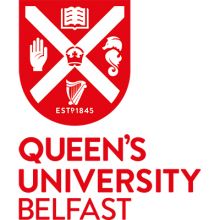National Institute for Health Research
Health Technology Assessment (NIHR HTA) Programme
- Award winner: Peter Fonagy
- Institution: University College London
- Value: £1,524,881
Mentalization for offending adult males (MOAM)
- Award winner: Cathy Creswell
- Institution: University of Reading
- Value: £641,747
Specific versus generic psychological therapy for adolescents with social anxiety disorder: a comparison of Clark & Wells condition-specific cognitive therapy adapted for adolescents, with the generic cognitive behaviour therapy that is currently used in adolescent services
- Award winner: Patrick Stone
- Institution: University College London
- Value: £831,611
The Prognosis in Palliative care Study II (PiPS2)
Public Health Research (PHR) Programme
- Award winner: Neil Humphrey
- Institution: University of Manchester
- Value: £561,315
Universal school-based prevention: examining the impact of the Good Behaviour Game on health-related outcomes for children
Economic and Social Research Council
Centre for Research and Evidence on Security Threats (CREST)
- Award winner: Neil Ferguson
- Institution: Liverpool Hope University
- Value: £62,150
Learning and unlearning terrorism: the transition from civilian life into paramilitarism and back again during the conflict and peace process in Northern Ireland
Research grants
- Award winner: Heather Johnson
- Institution: Queen’s University Belfast
- Value: £139,919
Boats, borders and asylum: the global politics of irregular migration in maritime space
- Award winner: Juan Medina-Ariza
- Institution: University of Manchester
- Value: £437,728
Understanding and improving risk assessment on domestic abuse cases
- Award winner: Robert Logie
- Institution: University of Edinburgh
- Value: £1,154,370
Working memory across the adult lifespan: an adversarial collaboration
- Award winner: Julian Gruin
- Institution: University of Warwick
- Value: £279,232
Reshaping global capital: the politics of uncertainty in China’s financial transnationalisation
In detail
Centre for Research and Evidence on Security Threats (CREST)
Award winners: Paul Thomas (PI) and Michele Grossman
Institutions: University of Huddersfield and Victoria University, Australia
Value: £124,950
Community reporting thresholds: sharing information with authorities concerning violent extremist activity and involvement in foreign conflict: a UK replication study
The first people to suspect that someone is involved in acts of violent extremism will often be close to them – family, friends, community insiders. Their preparedness to report them to authorities is viewed as a key step to the prevention of violent extremism. This project will explore people’s views, experiences and concerns if they were ever faced with this scenario; the dilemma they are confronted with. “Our UK study will…include a sub-sample of white British community respondents from marginalised communities and will intentionally over-sample young people, in recognition of recent American evidence that has stated that they are ‘associate gatekeepers’ for young friends at risk of radicalisation,” said Paul Thomas, professor of youth and policy at the University of Huddersfield.
Register to continue
Why register?
- Registration is free and only takes a moment
- Once registered, you can read 3 articles a month
- Sign up for our newsletter
Subscribe
Or subscribe for unlimited access to:
- Unlimited access to news, views, insights & reviews
- Digital editions
- Digital access to THE’s university and college rankings analysis
Already registered or a current subscriber?



